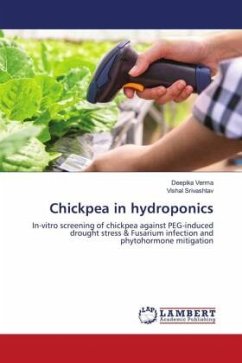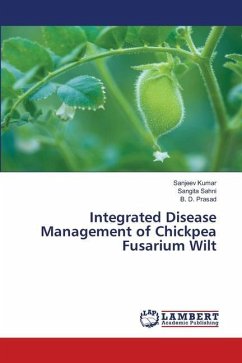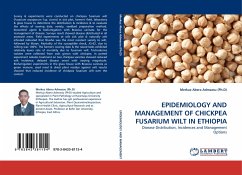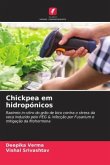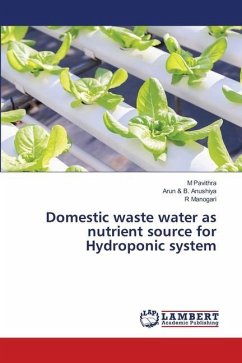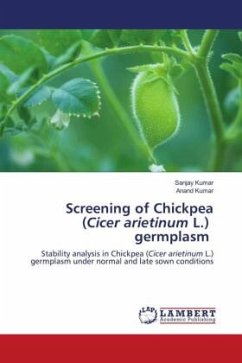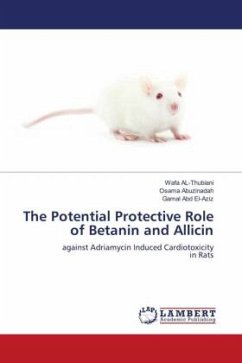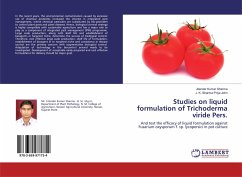Chickpea (Cicer arietinum L.) is an important annual legume crop, cultivated throughout India since ancient times. Drought stress influences the plant interaction with the pathogen when both the stress occurs simultaneously. Water deficit induced by Polyethylene glycol (PEG) affect physiological and biochemical changes without causing toxicity in plants. The wilt disease caused by Fusarium oxysporum is most dangerous, as it causes severe loss in yield by 50% and even up to total loss of yield as well and was chosen as biotic constraints in the present study. This in vitro study was undertaken to evaluate morphological parameters, levels of osmolytes and activities of antioxidative enzymes under PEG 8000 induced osmotic stress and Fusarium infection individually and in combination on two chickpea cultivars JG-14 and RVG-202. Moreover, to investigate the role of gibberellic acid and salicylic acid in mitigating the stress was also evaluated.

